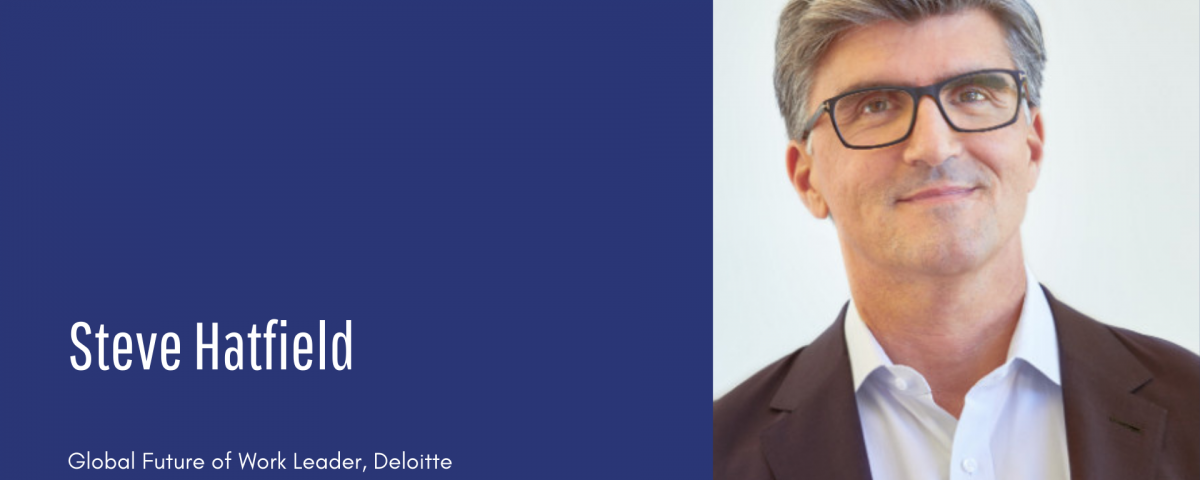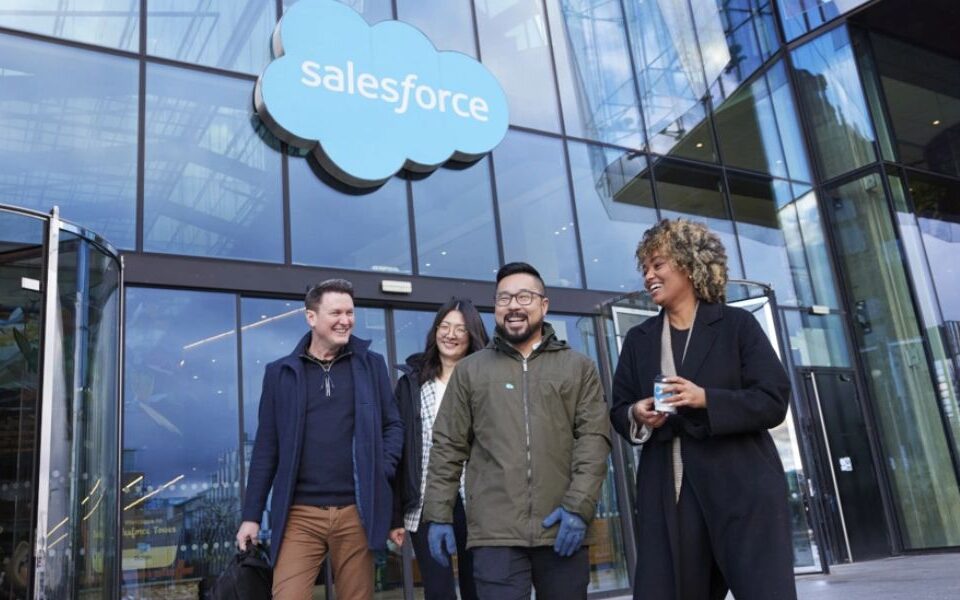- Have any questions?
- 888-432-8878
- steve@sebackground.com
White House Task Force Will Seek to Increase Unionization
May 7, 2021Viewpoint: Teaching Young Employees to Have Hard Conversations
May 9, 2021As a global management consulting business whose success depends on client trust, Deloitte puts a high value on talent with passion, grit and vision. From the vantage point of an extraordinarily lengthy career at the company, Steve Hatfield talked with The HR Digest about how Deloitte’s “purpose-driven” culture has helped forge the workplace of tomorrow.

The HR Digest: Rethinking the future of work is at the top of many executive teams’ agendas. What, according to you, will define the new frontiers of the future of work?
Steve Hatfield: Post-pandemic, we expect to see changes in how we think about almost every facet of work – but particularly in how organizations elevate humans and architect technology to enable greater productivity, innovation, resilience, and organization performance.
Resilience is key because, as this past year has shown us, work today is often in a continuous state of disruption. Organizations need to not only think about technology as a way to maintain connection when we’re all distanced or working remotely – but as a way to enable workers to be more creative and responsive to shifting market forces. In other words, using technology to elevate our human capabilities and potential, catalyzing greater problem-solving, collaboration, innovation and more.
How are you preparing your employees for this new reality of work?
At Deloitte, we had the benefit of having experience with remote work systems even before the pandemic, as many of our workers communicate and collaborate with clients and colleagues virtually across the country. We continue to be focused on improving our processes to make the most of these technology systems and humans working in complement to each other.
This is something that we’re seeing with a lot of the organizations we work with as well. There’s a new level of interest in looking at the processes that these businesses have followed for years and seeing if there are better ways to operate. This starts with a recognition that humans don’t work in the same way machines do, nor should they. As organizations continue to open up further this year, you’ll see leaders and workers coordinating to re-architect their approach to work as more of a flow, understanding that humans prefer to do work in a more fluid manner.
By creating a purpose-driven culture, Deloitte has found itself in constant process of cognitive transformation. This is an extraordinary asset in today’s world, where organizations must transform frequently, rapidly and economically to thrive. How do you keep the people at Deloitte motivated for change?
One of the draws to building a purpose-driven culture is the level of engagement and motivation it creates. We seek to engender an environment of exploration, creative problem-solving and learning in the work itself. People are motivated and involved in their work for all sorts of personal and professional reasons. Engagement and a feeling of purpose in one’s work is a key factor to fighting burnout, creating greater performance, and even improving well-being at work. We motivate our people by empowering them, mentoring them and giving them the tools they need to thrive along with continuous learning opportunities.
What is Deloitte’s secret sauce for being recognized several times as “Great Place to Work?” Do you still see room for improvement in Deloitte’s employment practices?
Deloitte is proud to be recognized as a great place to work, and all the hard work that our leaders, managers, and team members put in day in and day out to keep it that way. Part of why I think we continue to be seen as a great place to work is that we have never been an organization that rests on its laurels – we are always looking for ways that we can improve and build upon what we’ve learned.
That includes making sure that we “walk the talk” in making sure our workplace is resilient and purpose-driven in everything that we do. While we’ve always had communicative leaders, this past year has brough a new level of transparency in our discussions, as we often got to see our colleagues in ways we haven’t before. In some ways, it’s given us a new appreciation and understanding of the importance of nurturing a strong culture and team mindset in our approach to work.
Upskilling has a strong place on the strategic agenda of Deloitte. If you had to make the case for the value of upskilling in workforce decision making as succinctly as possible, how would you frame it?
Meaningful upskilling can only be attained by empowering workers with learning opportunities that will help them unleash their full potential. Launched in 2011, Deloitte University is one of the most important investments we make in our people. It’s where years of knowledge, experience, and values are fostered and passed on, and it’s where we develop leaders who make an impact that matters for each other, our clients, and the communities we serve. It made us more thoughtful on knowing when we need to get people together in a physical location for collaboration, strategizing, learning and relationship building, all wrapped by an amazing experience; and when we can be virtual using better technology to learn and collaborate. And this was before the pandemic! It has been a game-changer both for reinforcing our culture, purpose and motivating our team members to keep building on that vision.
What experiences, people, or philosophies have most influenced the way you view and practice leadership, and why?
You might say I’m a “Corporate Anthropologist” given my background in business and anthropology. I’ve spent the last 25 years looking at how organizations and leaders behave. I’ve learned that leadership is about fostering passion in those around you, supporting people to integrate work and life as a whole person, and championing one’s constant reinvention.
I’ve been at Deloitte for 22 years because we embody these behaviors. I’ve been fortunate to have worked with phenomenal colleagues exploring new and complex problems, all the while growing and reinventing as person and contributing to the firm at large. One of the most gratifying aspects in my role is paying this forward and motivating others in the same way Deloitte has motivated me.
This emphasis on what’s most important has helped my teams and Deloitte as a whole succeed. For example, during the past year, Deloitte understood that work/life integration, focusing on the well-being of our people, and advancing DEI were critical priorities; and through them we could motivate our people to grapple with the unknown and help our clients get through the worldwide crisis, and chart a course to thriving in the future.
What’s the key lesson you want future HR leaders to take away from your work?
This is an important time for HR leaders to help their organizations reimagine work and set a new direction for their workforce. The past year has made it clear across the C-suite just how central workforce issues are to an organization’s strategy and its ability to quickly adapt. According to the 2021 Deloitte Global Human Capital Report, 72% of respondents pointed to the ability of their people to adapt, reskill and assume new roles as one of the most important factors for navigating future disruptions. What’s more, 41% of executives said that building workforce capabilities through upskilling, reskilling and mobility is one of the most important actions they are taking to transform work.
As a result, HR has the ear and attention of the C-suite. Confidence in HR among business executives has notably increased over the past year, with many of these executives looking to their departments for the best ways to empower workers and drive stronger outcomes throughout the organization. By embracing their role as architects of work, HR leaders can expand on their impact and help push their organization toward its broader economic and human goals.
The post The Workplace of Tomorrow: An Interview with Steve Hatfield appeared first on The HR Digest.
Source: New feed




